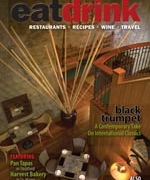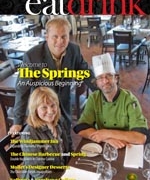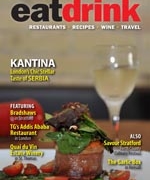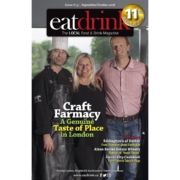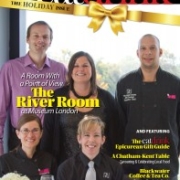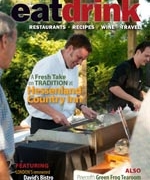Eating Without Borders
Many people travel to enjoy exotic food directly from the source. Who couldn’t argue that Pad Thai tastes exponentially better from a stall on the streets of Bangkok or that Crème Brule has a certain je ne sais quoi when eaten in a Parisian bistro? Sometimes it’s beneficial to get a glimpse of the food served in other countries, if for no other reason than to avoid any surprises; as British food writer, Tom Parker Bowles, describes in his book, The Year of Eating Dangerously: A Global Adventure in Search of Culinary Extremes, sometimes we need to experience cuisine by delving into menu items that define the extreme edges of a culture, the type of food that not everyone would even agree is food.
The author’s early impressions of food are tainted by the cafeteria menu from his prep school – “institutional slop of the lowest form, the sort of bland, unthinking crap that gave British cuisine such a filthy reputation.” Thus began his lifelong journey of eating meals of dubious ingredients, and it’s no wonder he developed a taste for gastronomic adventure to satisfy his palate. His first affection for foreign cuisine was a fascination with American fast food, candy, and soft drinks. Lucky for us, he veers away from this childish love affair and his adventures cover much more elaborate ground with the locations he visits being as integral as the food he finds along the way: from burning tongue and throat with painfully hot chillies in New Mexico; to the obligatory cobra bile that every extreme eater tries in Hong Kong; to literally risking his life with a potentially-lethal dose of puffer fish (fugu) in Tokyo; to the ultimate fresh salad in Laos which finds him chasing live shrimp around the table before munching down on them; to sucking the black jelly from the brain of a whole octopus in Sicily; to bartering in outdoor markets that offer “the usual menagerie of endangered species” and are as frenetic as stock market trading floors.
Anecdotes about cuisine from around the world give Bowles plenty of fodder. Nearly everything in China, if it is prepared and eaten properly, has auspicious side effects – cobra bile liquor is legendary for increasing male libido and turtle soup symbolizes long life, although he has difficulty finding anything resembling good fortune around a dinner table in Shanghai with the offering of fermented tofu, described as having the stench of rotten feet or “the armpit of a French woman.” The most regrettable part of his travels (and the most difficult to read for anyone with pets) is tracking down dog soup in South Korea; as much as he expounds the inhumanity of it, the search continues in the name of culinary fieldwork.
Aside from defining food abnormalities, much of his writing celebrates culinary artistry around the globe. Some destinations even appear commonplace with plenty of home-style cooking to represent the areas he visits, such as the South Western flavours of New Mexico. He tries hot sauces that require disclaimers to be signed before the vendor will hand them over to eliminate the risk of chilli damage lawsuits. Some of the hottest sauces are stronger than police pepper spray, although the most dangerous sauces on record are more collectors’ items than condiments, not to be eaten but saved as reminders of the damage a tiny chilli can inflict on the human tongue.
In Tennessee, dangerous eating is not so much the element of the unknown, but rather the quantity he consumes as a judge at The Jack Daniel’s Invitational Barbeque Competition. In the words of the intrepid author who set out to eat anything: “This time I pushed it too far. I’d make a wretched competitive eater. My head throbs, my stomach churns and every burp is tinged with peril. This is dangerous eating, worse than the chillies or the night on the River Severn. My discomfort is all consuming, and I never want to see food, any food, ever again.” Even days later, Bowles feels “like an anaconda after a particularly large mammalian dinner and vow that I will never again put my gut through such exacting excess.” And this is where dangerous eating hits home. Even if we don’t fancy snake soup or deep-fried bugs, we can all relate to this sentiment, as it is merely the same empty promise we all make after dangerously, but happily, gorging ourselves on a huge holiday dinner.

